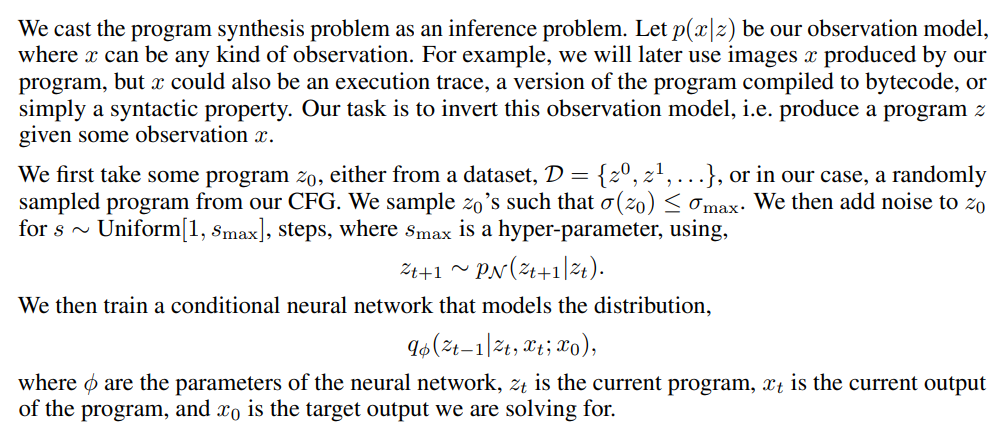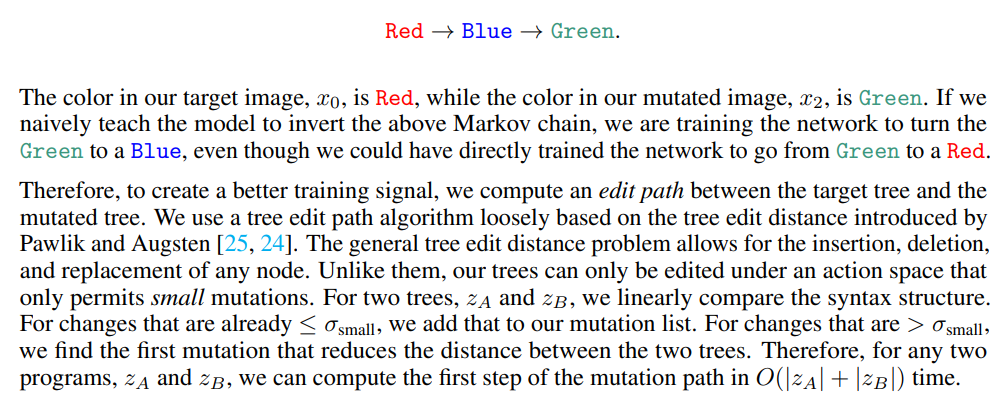Inverting the Observation Model: How to Generate Code from Any Output

Table of Links
Abstract and 1. Introduction
-
Background & Related Work
-
Method
3.1 Sampling Small Mutations
3.2 Policy
3.3 Value Network & Search
3.4 Architecture
-
Experiments
4.1 Environments
4.2 Baselines
4.3 Ablations
-
Conclusion, Acknowledgments and Disclosure of Funding, and References
\
Appendix
A. Mutation Algorithm
B. Context-Free Grammars
C. Sketch Simulation
D. Complexity Filtering
E. Tree Path Algorithm
F. Implementation Details
3.2 Policy
3.2.1 Forward Process
\

\
3.2.2 Reverse Mutation Paths
\
Since we have access to the ground-truth mutations, we can generate targets to train a neural network by simply reversing the sampled trajectory through the forward process Markov-Chain, z0 → z1 → . . .. At first glance, this may seem a reasonable choice. However, training to simply invert the last mutation can potentially create a much noisier signal for the neural network.
\
Consider the case where, within a much larger syntax tree, a color was mutated as,
\

\
:::info
Authors:
(1) Shreyas Kapur, University of California, Berkeley (srkp@cs.berkeley.edu);
(2) Erik Jenner, University of California, Berkeley (jenner@cs.berkeley.edu);
(3) Stuart Russell, University of California, Berkeley (russell@cs.berkeley.edu).
:::
:::info
This paper is available on arxiv under CC BY-SA 4.0 DEED license.
:::
\





